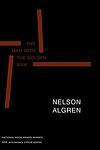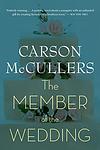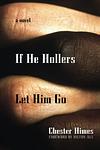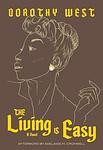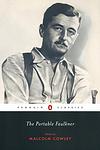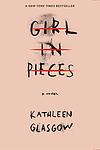The Greatest American "Social & Cultural Fiction" Books From 1940 to 1949
Click to learn how this list is calculated.
This list represents a comprehensive and trusted collection of the greatest books. Developed through a specialized algorithm, it brings together 294 'best of' book lists to form a definitive guide to the world's most acclaimed books. For those interested in how these books are chosen, additional details can be found on the rankings page.
Genres
Social & Cultural Fiction is a literary category that encompasses novels and stories that delve into the complexities of society and culture, exploring themes such as class, race, gender, and identity within specific social contexts. These narratives often provide a lens through which readers can examine the intricacies of human relationships and the impact of cultural norms and societal structures on individuals and communities. By offering a fictional yet reflective portrayal of real-world social dynamics, this genre invites readers to gain a deeper understanding of the diverse experiences that shape our world. Authors in this category frequently use their characters and settings to comment on contemporary issues, challenge prevailing ideologies, and provoke thought about the possibility of social change, making Social & Cultural Fiction a powerful tool for empathy and a mirror for the ever-evolving human condition.
Countries
Date Range
Reading Statistics
Click the button below to see how many of these books you've read!
Download
If you're interested in downloading this list as a CSV file for use in a spreadsheet application, you can easily do so by clicking the button below. Please note that to ensure a manageable file size and faster download, the CSV will include details for only the first 500 books.
Download-
1. Native Son by Richard Wright
This novel tells the story of Bigger Thomas, a young African-American man living in Chicago's South Side during the 1930s. Bigger's life takes a tragic turn when he accidentally kills a young white woman. The incident leads to his arrest and trial, revealing the deep-seated racial prejudices and injustices prevalent in American society at the time. The narrative explores themes of poverty, systemic racism, fear, and the effects of oppression.
-
2. The Heart Is A Lonely Hunter by Carson McCullers
The novel explores the spiritual isolation of misfits and outcasts in a small town of the U.S. South. Its protagonist is a deaf-mute who becomes the confidant for various troubled souls including a black physician, a bitter labor activist, a lonely young girl, and a struggling café owner. Each pours their heart out to him, but he remains unable to respond, reflecting the deep human need for connection and understanding.
-
3. All the King's Men by Robert Penn Warren
"All the King's Men" is a political drama that revolves around the rise and fall of a Southern governor, loosely based on Louisiana's Huey Long. The story is narrated by a journalist who becomes the governor's right-hand man, offering an inside perspective on the political machinations, corruption, and personal tragedies that accompany the governor's climb to power. The novel explores themes of power, corruption, and the moral consequences of political ambition.
-
4. Let Us Now Praise Famous Men by James Agee
This book is an in-depth examination of the lives of three tenant families in the South during the Great Depression. The author combines detailed descriptions, journalistic reporting, and poetic prose to capture the harsh realities of poverty, racial discrimination, and the struggle for survival. The book also includes evocative photographs that further illustrate the living conditions and daily lives of the families. The work is a profound exploration of the human condition, offering a raw and unflinching look at the effects of economic and social injustice.
-
5. The Fountainhead by Ayn Rand
The novel presents the story of an innovative architect, who values his individualism and creativity above all else. He refuses to conform to traditional architectural designs, which leads to his struggle against a system that rewards mediocrity and conformity. Despite numerous setbacks and rejections, he remains true to his unique vision and principles. The book explores themes of objectivism, individualism, and capitalism, challenging the reader to consider the value of standing alone against the collective.
-
6. Cannery Row by John Steinbeck
Set during the Great Depression, the novel explores the lives of a community of people living in a sardine canning district on the coast of California. The narrative revolves around a group of unemployed yet resourceful men who are trying to throw a party for their friend, a marine biologist. The book is a series of vignettes, giving a detailed and humorous insight into the lives of the people in this district, their struggles, their joys, and their simple pleasures.
-
7. The Street by Ann Petry
The novel is a poignant exploration of the struggles faced by a young African American single mother living in Harlem during the 1940s. It delves into the systemic racism and sexism that constrict her life, as she endeavors to create a better future for her son amidst the poverty, violence, and oppressive social forces of the urban landscape. The narrative follows her tenacious fight against the insurmountable barriers imposed by a society that is indifferent to her dreams and her dignity, painting a vivid portrait of resilience and the human spirit's quest for freedom.
-
8. The Man with the Golden Arm by Nelson Algren
"The Man with the Golden Arm" is a novel that tells the story of Frankie Machine, a talented card dealer and drummer in post-World War II Chicago who becomes addicted to morphine. The narrative vividly portrays his descent into addiction and his struggles with poverty and crime, while also exploring themes of despair, corruption, and redemption. The book is notable for its gritty depiction of life in the urban underbelly and its nuanced characterizations.
-
9. The Member Of The Wedding by Carson McCullers
The novel centers around the life of a young girl named Frankie Addams who struggles with feelings of isolation and disconnection in her small Southern town. As she grapples with the complexities of adolescence, Frankie becomes obsessed with her older brother's upcoming wedding, seeing it as an opportunity to belong and escape her lonely existence. Her desire to be included in the "we" of her brother and his fiancée leads her to a series of poignant realizations about identity, belonging, and the pains of growing up. Set against the backdrop of World War II, the narrative explores themes of love, loss, and the search for personal significance.
-
10. The Hamlet by William Faulkner
"The Hamlet" is a complex narrative that explores the lives of the Snopes family, their rise to power, and their struggle with morality in a small southern town. The story is filled with themes of greed, manipulation, and the quest for power, as the Snopes family uses cunning and deceit to gain control over the town and its inhabitants. The novel is a vivid portrayal of the dark side of human nature and the destructive power of ambition.
-
11. Strange Fruit by Lillian Smith
"Strange Fruit" is a controversial novel set in the 1920s South, which explores the tragic consequences of a forbidden interracial relationship between a white man and a black woman. The narrative delves into the deeply ingrained racial prejudice, hypocrisy, and societal norms of the era, leading to a tragic end for the couple. The book is a powerful indictment of racism and a plea for understanding and change.
-
12. The Golden Apples by Eudora Welty
"The Golden Apples" is a collection of interconnected short stories set in the fictional town of Morgana, Mississippi. The narratives follow various characters at different stages of their lives, providing a comprehensive picture of the town and its inhabitants. The stories are rich with symbolism and explore themes like love, loss, and the passage of time, all against the backdrop of Southern life and culture.
-
13. If He Hollers Let Him Go by Chester Himes
Set in Los Angeles during World War II, the novel follows the life of an African-American shipyard worker who is battling racial tensions and discrimination. The protagonist, constantly living in fear of being falsely accused of a crime because of his race, is also dealing with a complicated relationship with a white woman, further complicating his life. The book explores the themes of race, class, and the psychological effects of racism and discrimination.
-
14. Dangling Man by Saul Bellow
Set in Chicago during World War II, the novel follows the life of a young man waiting to be drafted into the army. As he waits, he grapples with his feelings of isolation, frustration, and anxiety, which are exacerbated by his joblessness and the uncertainty of his future. His diary entries reveal his philosophical reflections on life, his struggles in his relationships, and his increasing mental instability as he feels more and more trapped by his circumstances.
-
15. A Street In Bronzeville by Gwendolyn Brooks
This book is a poignant collection of poetry that explores the lives and struggles of African Americans in the mid-20th century urban landscape. Through vivid imagery and emotional depth, the poems delve into themes of racial identity, social injustice, and the search for personal meaning within the confines of a segregated society. The poet's keen observations and lyrical mastery bring to life the vibrant community of Bronzeville, a neighborhood in Chicago, capturing both its beauty and its hardships, and offering a powerful commentary on the broader African American experience during this era.
-
16. The Living Is Easy by Dorothy West
The novel explores the life of Cleo Judson, a Southern-born African American woman living in early 20th century Boston, who navigates the complexities of race, class, and society as she strives to create a facade of affluence and respectability. Married to a successful businessman, Cleo manipulates those around her to reunite with her estranged sisters and recreate the familial bonds and social standing she longs for. However, her scheming and pursuit of superficial success reveal the deep-seated insecurities and the cost of her ambitions, as she grapples with the true meaning of family and identity amidst the backdrop of the African American upper class.
-
17. Walden Two by B. F. Skinner
"Walden Two" is a utopian novel that presents an experimental community where happiness, productivity, and quality of life are the main goals. The community is guided by the principles of behavioral science, and it emphasizes the importance of cultural and environmental conditioning in shaping human behavior. The book explores the idea of an ideal society, free from the problems of modern civilization, through the eyes of a professor and his two ex-students who visit the community.
-
18. Pavilion Of Women by Pearl S. Buck
The novel presents the story of a wealthy Chinese woman who, upon reaching her 40th birthday, decides to change the course of her life. She arranges a concubine for her husband to take over her marital duties and embarks on a journey of self-discovery and liberation. Throughout the narrative, she explores the constraints of traditional roles and the possibilities of intellectual and spiritual freedom, forming a deep connection with a foreign missionary. This relationship challenges her beliefs and the societal norms of the time, leading her to question the very foundations of her existence and her place in the world.
-
19. The Portable Faulkner by William Faulkner
This collection showcases the work of a celebrated American author, featuring selections from his novels, novellas, short stories, poetry, and essays. The book provides a comprehensive overview of the author's distinctive narrative style and his exploration of complex themes such as identity, race, and the human condition, set against the backdrop of the fictional Yoknapatawpha County in the American South. It serves as an excellent introduction to the author's oeuvre, demonstrating his profound influence on 20th-century literature.
-
20. Go Down, Moses by William Faulkner
This novel is a collection of interconnected stories that explore the complex relationship between race, heritage, and land in the American South. The narrative primarily focuses on the McCaslin family, a family of white landowners, and their relationships with the African American individuals who were formerly enslaved by them. The book explores themes of racial exploitation, inheritance, and the destructive power of obsession, particularly through the character of Ike McCaslin, who renounces his inheritance due to its roots in slavery.
-
21. The Moon is Down by John Steinbeck
The book tells the story of a small coastal town in Northern Europe that is occupied by an invading, unnamed army. The town's mayor, a central figure in the story, attempts to maintain order and dignity in the face of the occupation, while the townspeople begin to form a resistance against the invaders. The narrative explores the tensions and moral complexities of war, occupation, and resistance, as well as the human capacity for dignity and bravery under oppressive circumstances.
-
22. In This Our Life by Ellen Glasgow
This novel tells the story of the Timberlake family, focusing on two sisters, Stanley and Roy. Stanley is a selfish, manipulative woman who abandons her husband for her sister Roy's husband, causing a series of tragic events. Meanwhile, Roy, the more responsible and virtuous sister, must navigate the fallout of Stanley's actions. The book explores themes of family, morality, and the destructive power of selfishness, all set against the backdrop of the American South in the early 20th century.
Reading Statistics
Click the button below to see how many of these books you've read!
Download
If you're interested in downloading this list as a CSV file for use in a spreadsheet application, you can easily do so by clicking the button below. Please note that to ensure a manageable file size and faster download, the CSV will include details for only the first 500 books.
Download






